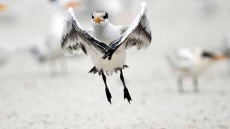Humans can detect and distinguish a trillion different odours and researchers have now identified the chemical strategy that the nose applies to perceive a common class of odours found in herbs, flowers and fruits.
The mammalian nose detects chemicals known as aldehydes by its ability to undergo a chemical reaction with water, likely after entering the nose, the findings showed.
Aldehydes are typically fresh smelling chemicals. their synthetic forms are important to the flavour and fragrance industry.
"Some of the nose's many aldehyde receptors don't detect the aldehyde by its structure and shape directly," the researchers said.
"Once exposed to air, aldehydes have a limited lifetime as oxygen slowly converts them into less savoury, even malodourous chemicals," said Kevin Ryan, an associate professor of chemistry at The City College of New York in the US.
"It is not surprising then that the nose is adept at detecting aldehydes and distinguishing them from structurally similar chemical groups," Ryan added.
Odourant receptors make up a large family of cell membrane proteins that monitor inhaled air on neurons within the nose.
"In our experiments, some of the many odourant receptors that detected the eight-carbon aldehyde octanal recognised the aldehyde portion of the molecule by its ability to morph into a completely different chemical group, known as a gem-diol," Ryan maintained.
The study is forthcoming in the journal ACS Chemical Biology.





